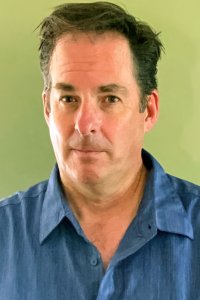 Professor and the Department Chair of the Department of Environment & Sustainability | Faculty Bio
Professor and the Department Chair of the Department of Environment & Sustainability | Faculty Bio
Interview
(Interview by Barbara Bird, September 6, 2024)
How long have you been teaching at OWU?
25 years
What drew you to your field of study?
I majored in Political Science and Philosophy (undergrad) and accidentally found my way into Geography (at UW Madison) because I thought making maps (in the Cartographic Lab there) would be a nice complement to my heady majors. Geography turned out to be delightfully broad and diverse (natural science, social science, humanities, but also an array of stuff like mapping and Geospatial tech) which, for me, was its primary draw. I don't like being narrow. Some research is necessarily narrow, but beyond that, if you are narrow in the rest of what you do, you are doing a disservice to your students and yourself.
Pedagogy Questions
- What are the top 2 things students say about your teaching?
They start off a bit freaked out by the unusual asks I make of them (sprawling, real-world kinds of projects, presenting core material in classes, taking the lead in class), and most come to appreciate the outcomes.
I'm a character with an improv kind of approach to classes and don't seem like most other faculty (in a good way). It's hard to quantify this one.
- What are 2-3 things you do in your classes that are most effective for you in helping your students learn?
1) Academic material can be a trudge. If they find me interesting, and I toss in all sorts of stuff that may seem peripheral (but isn't always) and do what is unexpected, they seem to tune into the academic material. I'm careful to avoid the big academic ego thing here, though. There is a fine line between that and the affable eccentric.
2) Active engagement. Toss stuff at them, make them take ownership, and support them so they can succeed. I don't know it all, by a long shot.
3) Context: ENVS has worked hard to make cool classroom spaces, cool hangout spaces (of which there were nearly none in SCSC), stuff like lockers for commuter students, free printing, free soda in our hangout spaces, events, and my very cool office which seems to hook a significant number of students. This all, I think, makes students realize we care about them. We have students who are not even majors hanging out with us because their major departments are less focused on these things.
- Why do you think students learn well with those pedagogies?
Hmmm… it's not the old memorize and regurgitate. I know that is important in some classes but probably not most. My students respond well to pedagogy, which is not the stereotypical class format and instructor role. I more or less just do the opposite of the strict-lecture approach and it somehow works.
- What has contributed to your growth as a teacher?
I found myself increasingly happy and students engaged as I began using pedagogies that were the opposite of the examples I saw around me I did pay attention to innovations and ways to improve, but my desire to grow pedagogically was fueled by what clearly did not work. Seeing the impact of poor teaching, bad attitudes, and interpersonal failings on students spurred me to avoid that and move in the opposite direction to what engaged students in learning.
- What is one phrase that might represent you as a teacher?
Students will leave my classes as at least slightly more interesting people.

 Professor and the Department Chair of the Department of Environment & Sustainability | Faculty Bio
Professor and the Department Chair of the Department of Environment & Sustainability | Faculty Bio